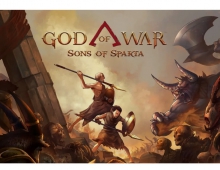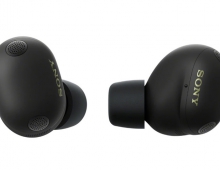
Sony PS2 hits Chinese market
Sony will launch its popular PlayStation 2 game console in China next month, saying on Friday it must be "courageous" in the face of rampant piracy that has plagued the vast potential market.
The machine, which debuted in Japan in early 2000 and the United States in late 2001, will hit Chinese shelves on December 20 with a price tag of 1,988 yuan ($240). That compares to $179 in the United States.
"We have to realize the reality, that piracy cannot be controlled 100 percent, not only in China but also in other parts of the world," Sony China Chairman Hiroshi Shoda told reporters in an upscale Beijing cinema. "We have to be courageous, to face the reality." He declined to give sales projections.
Sony has sold 62 million PlayStation 2 (PS2) consoles worldwide, and is heading into the holiday season hoping to cut costs and squeeze more profits out of the market-leading machine.
PlayStation is crucial to the Japanese electronics giant's bottom line. Last year, the games division accounted for just 13 percent of sales, but nearly two-thirds of operating profits.
Sony will initially sell the console in five Chinese cities -- Beijing, Shanghai, Guangzhou, Shenzhen and Chengdu, home to nearly 40 million people. More cities will follow.
Only two or three games will be available at launch, priced at 168 yuan, or around $20, each, well below U.S. retail prices of $50 but above the dollar or two that pirated titles fetch on Chinese streets.
Sony said major game developers such as Konami Corp, Sega Corp, Namco Ltd and Taito Corp were also working on Chinese versions of their games.
Sony planned to introduce future game products, such as its upcoming handheld PSP device and future PlayStation versions, in China at the same time as other countries.
Sony's chief competitors are Microsoft Corp, which makes the Xbox console, and Japanese rival Nintendo Co Ltd, which sells the GameCube machine. Both consoles have sold about 10 million units.
Though all the machines are sold in Chinese-speaking regions like Hong Kong and Taiwan, their makers have shunned the mainland because of rampant counterfeiting.
In September, Nintendo said it would start selling a console developed specifically for the Chinese market. To thwart piracy, the machine uses a flash memory card to which games can be downloaded in stores.
"We have to realize the reality, that piracy cannot be controlled 100 percent, not only in China but also in other parts of the world," Sony China Chairman Hiroshi Shoda told reporters in an upscale Beijing cinema. "We have to be courageous, to face the reality." He declined to give sales projections.
Sony has sold 62 million PlayStation 2 (PS2) consoles worldwide, and is heading into the holiday season hoping to cut costs and squeeze more profits out of the market-leading machine.
PlayStation is crucial to the Japanese electronics giant's bottom line. Last year, the games division accounted for just 13 percent of sales, but nearly two-thirds of operating profits.
Sony will initially sell the console in five Chinese cities -- Beijing, Shanghai, Guangzhou, Shenzhen and Chengdu, home to nearly 40 million people. More cities will follow.
Only two or three games will be available at launch, priced at 168 yuan, or around $20, each, well below U.S. retail prices of $50 but above the dollar or two that pirated titles fetch on Chinese streets.
Sony said major game developers such as Konami Corp, Sega Corp, Namco Ltd and Taito Corp were also working on Chinese versions of their games.
Sony planned to introduce future game products, such as its upcoming handheld PSP device and future PlayStation versions, in China at the same time as other countries.
Sony's chief competitors are Microsoft Corp, which makes the Xbox console, and Japanese rival Nintendo Co Ltd, which sells the GameCube machine. Both consoles have sold about 10 million units.
Though all the machines are sold in Chinese-speaking regions like Hong Kong and Taiwan, their makers have shunned the mainland because of rampant counterfeiting.
In September, Nintendo said it would start selling a console developed specifically for the Chinese market. To thwart piracy, the machine uses a flash memory card to which games can be downloaded in stores.





















